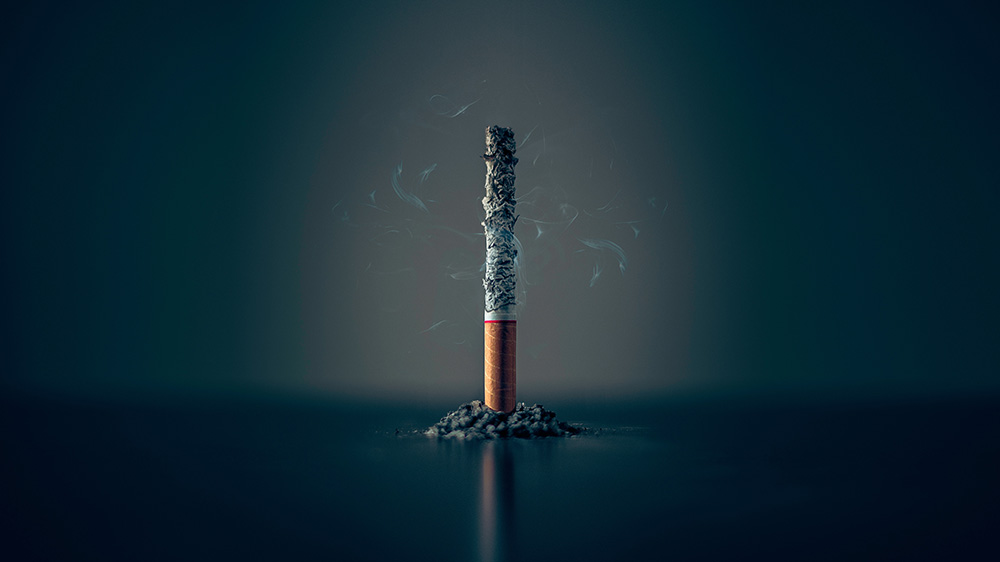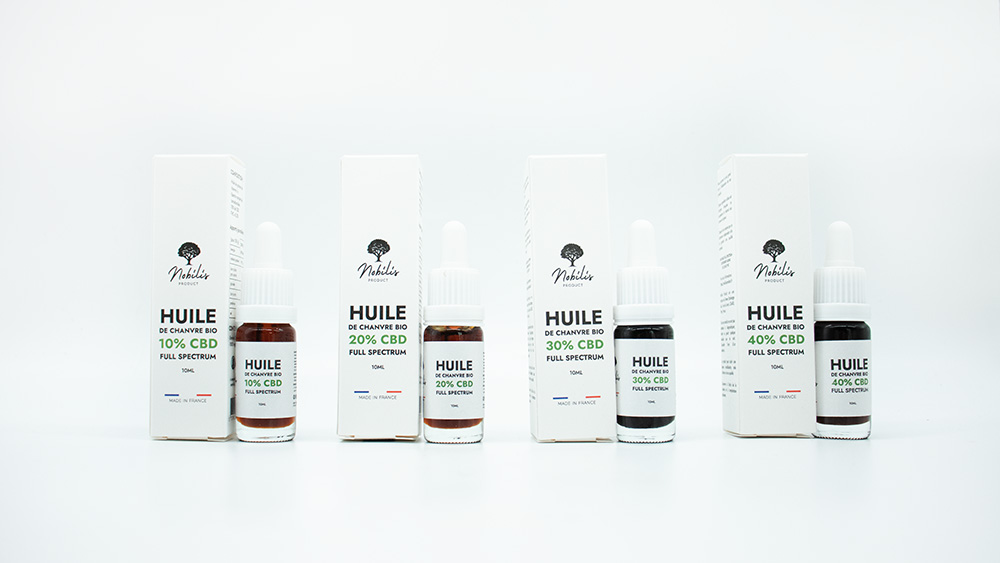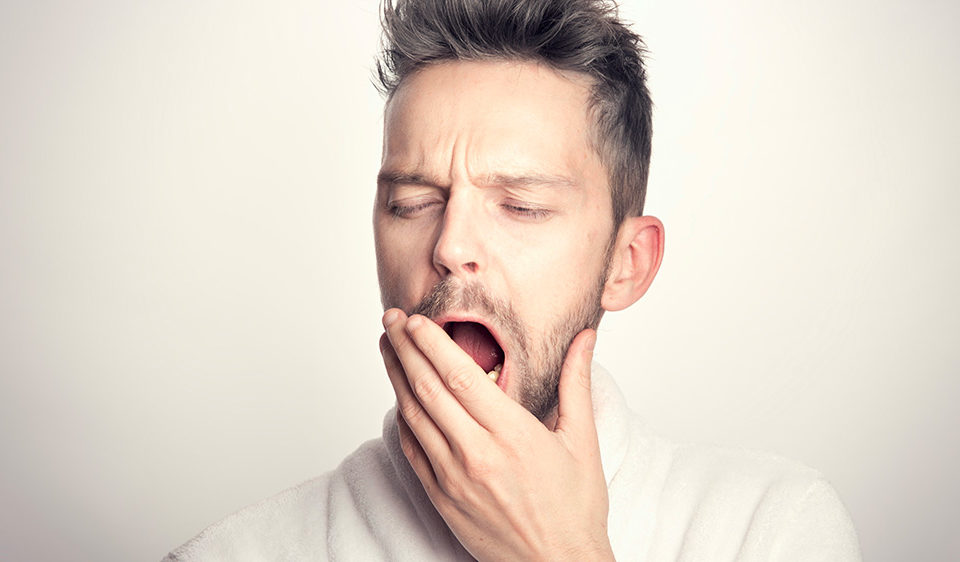
Is CBD oil effective in combating stress and anxiety?
July 6, 2023
CBD oil for back pain: how can it help?
July 6, 2023Although smoking is not contagious, it causes millions of deaths worldwide. It is also one of the most addictive substances on earth. Every year, over 8 million people die from tobacco-related diseases (1).
In France, over 13 million people struggle with nicotine addiction. Worse still, conventional treatments seem to be failing to help these people stop smoking cigarettes.
Fortunately, many promising "new" therapies, such as cognitive-behavioral therapy, can be reinforced by natural remedies capable of alleviating withdrawal symptoms. CBD (cannabidiol) is currently making headlines in research journals for its ability to reduce tobacco dependency.
Does using CBD oil to stop smoking make sense?
Read on to find out.
Can CBD oil be used to stop smoking tobacco?
Understanding how nicotine addiction works is essential to finding an effective solution. Apart from the obvious physical dependence, smoking cigarettes creates a habit and can therefore trigger behavioral addiction.
In the case of a physical addiction, you simply have to put up with the time your body needs to clear the nicotine from your system and return to normal functioning.
Behavioral addictions are more complex , as the addict's brain associates a feeling of pleasure with the inhalation of cigarette smoke.
This explains why nicotine replacement therapies, such as nicotine gums or patches, have low withdrawal success rates.

Imagine indulging in a particular activity 20 to 40 times a day for 10 to 20 years; won't it be hard to give up that habit, whatever the activity?
The dopamine rush combined with an effortless way to feel it - as is the case with cigarettes - further reinforces the habit, making abrupt withdrawal more difficult.
Below we explain how CBD can help you to:
- reduce the desire to smoke
- reduce withdrawal symptoms
- rewire your brain so that it no longer associates smoking with a priority.
How can CBD oil help you quit smoking?
CBD has a versatile therapeutic profile.
People use it to relieve a wide range of conditions and symptoms, including pain, muscle spasms, tremors, epileptic seizures, insomnia, autoimmune diseases, neurodegeneration and dementia, and more.
Recently, CBD has attracted the attention of psychiatrists and addiction experts for its potential in treating tobacco addiction.
Here we explain how using CBD oil can help you stop smoking cigarettes.
1. CBD eases smoking withdrawal symptoms
Nicotine is highly addictive, similar to so-called "hard" drugs such as cocaine, hence the need to stop smoking cigarettes. Most smokers face a barrier of withdrawal symptoms that are almost impossible to overcome.
Physical dependence on tobacco goes far beyond the desire for another cigarette. Withdrawal symptoms appear within a few days, and includeirritability, anxiety, difficulty falling asleep, high blood pressure, headaches and depression.
They can persist for up to several weeks. If the withdrawal period were easy to overcome, tobacco addiction would not have become a global health problem.
CBD interacts with the human endocannabinoid system (ECS), which maintains homeostasis throughout the body.
The endocannabinoid system controls essential bodily functions, such as
- sleep cycles,
- stress response,
- blood pressure,
- body temperature,
- mood,
- memory,
- pain perception,
- etc.
CBD is a potent inhibitor of FAAH (Fatty Acid Amide Hydrolase), an enzyme that breaks down the body's natural endocannabinoids. These endocannabinoids bind to the brain's cannabinoid receptors (CB1), which can influence mood, pain, sleep and reward regions in your brain. CBD oil supplementation helps you maintain sufficient levels of your own cannabinoids and thus reduces dysfunction of the essential bodily functions mentioned above.
2. CBD oil reduces tobacco cravings
A study published in May 2018 in the UK examined the potential benefits of CBD on smoking-related behavior (3). This double-blind, randomized study included a sample of 30 dependent smokers. Each of the participants took 800 mg of CBD orally or an equivalent dose of a placebo.
Next, subjects were shown "pictorial tobacco cues" such as alcohol consumption, parties, other people smoking, etc., and analyzed for heart rate, cravings, blood pressure and withdrawal symptoms.
The authors concluded that a single dose of 800 mg CBD could help reduce the "pleasantness" of images associated with smoking compared with the placebo group, particularly for participants who underwent only a single day of withdrawal for the study.
3. CBD relieves anxiety following smoking cessation
In addition to regulating the endocrine system, CBD uses over 60 molecular targets to interact with the body, which explains its therapeutic versatility.
One of these targets involves modulation of the GABA receptor to balance the levels of two neurotransmitters: glutamate (excitatory) and gamma-aminobutyric acid (inhibitory). High levels of glutamate and low levels of GABA are associated with brain hyperactivity and increased feelings of anxiety. By modulating the GABA receptor, CBD helps maintain balance in your nervous system, preventing anxiety attacks, improving stress response and enhancing concentration.

CBD also acts on the serotonin receptor. Serotonin is the neurotransmitter responsible for mood and emotions, low levels of which are linked to anxiety and depression. Conversely, excessive levels of serotonin in the brain can cause muscle spasms, hyperactive reflexes, shivering, clumsiness and tremors.
Although CBD doesn't directly increase your serotonin levels, it does block its reuptake by interacting with the serotonin 5-1HTA receptor so your brain can use it more efficiently. This in turn translates into healthy brain cell function, helping to relieve tremors, muscle spasms and even reduce the incidence of anxiety and depression.
4. CBD reduces cigarette consumption
Another study looked at the behaviour of smokers who wanted to stop smoking cigarettes. Each smoker took an inhaler containing either CBD or a placebo vaping cartridge. Participants were invited to use the inhalers whenever they felt the urge to smoke. At the end of the week-long study, the CBD group showed a 40% reduction in cigarette consumption, while the placebo group reported no significant difference in the number of cigarettes smoked.
The authors of the study concluded that this effect could be attributed to CBD's indirect interactions with CB1 receptors. Not only does CBD increase the natural level of anandamide, one of the two main endocannabinoids known as the "bliss molecule", but it can also attenuate the stimulant properties of nicotine.
In a research article published in the journal Addiction, Hindocha et al. conducted a series of experiments in which smoking cannabis was associated with a reduction in tobacco consumption. The research team hypothesized that:
"There may be reason to be optimistic about the potential of vaporizers. If vaporizers can reduce the co-administration of cannabis and tobacco, the result could be a reduction in tobacco use and tobacco dependence among cannabis users and, consequently, a reduction in the harms associated with cannabis/tobacco.
Indeed, if cannabis vaping becomes increasingly common, the next generation of consumers may no longer be exposed to nicotine or tobacco in the first place."
Benefits of smoking CBD instead of tobacco
For some people, the problem of quitting smoking has more to do with habit than physical dependence.
You pick up a cigarette, light it and take a steady puff - day after day, month after month, year after year.
Imagine stopping that in the blink of an eye - giving up a part of your identity requires both sheer willpower and sheer determination.
By smoking CBD instead of regular cigarettes, you can maintain the habit of smoking a cigarette without the physically addictive content. Of course, smoking a CBD joint still brings tar and other harmful substances to your system, butit can help you get over nicotine, then gradually move on to vaping CBD - in flower or vaping liquid form.
How to use CBD to quit cigarettes
As you can see, CBD can do a lot to help you quit smoking cigarettes. But how do you take CBD to get the best results for your nicotine addiction? Here are a few tips that may make it easier for you:
To quit smoking: choose high-quality CBD oil
The source of your CBD oil can limit your experience of using cannabidiol to stop smoking. There's a universal rule for buying CBD oil on an unregulated market: only buy reputable brands.

To do this, make sure that the brand you are interested in meets the following criteria:
- The source of the hemp : give priority to brands with organic hemp fields. Avoid products made from mass-produced cannabis imported from overseas, as this type of hemp is often contaminated with pesticides, heavy metals and synthetic fertilizers.
- THC content: the THC concentration in your CBD oil must be less than 0.3% to be considered legal.
- Laboratory reports : it's always best to choose a company that provides certificates of analysis. These certificates give you an overview of the product's phytochemical profile, including THC content and purity levels.
How to dose CBD oil to overcome tobacco addiction
If you're looking for a specific answer, we don't have good news for you. Since CBD has not yet been clinically tested for tobacco dependence, there are no established dosing guidelines for it. You can, however, get a rough reference point by consulting studies that have examined the effectiveness of different doses of CBD for quitting smoking.
Another reason why CBD dosing in humans isn't so obvious is the number of individual factors at play. The list includes the individual's weight, metabolism, unique body chemistry, severity of addiction and withdrawal symptoms, and, ultimately, the potency of your CBD product.
Consulting a doctor experienced in the use of CBD for addiction should help you establish the optimal starting dosage. We recommend that you start with a low dosesuch as 10-15 mg per day, to see how your body reacts to cannabidiol.
If this works for you, you can start taking more to see how much reduces the salience of tobacco stimuli.
Put an end to cigarettes: opt for a full-spectrum CBD oil
Full-spectrum CBD oil contains all the beneficial compounds naturally found in hemp plants, including CBD, adjunct cannabinoids, terpenes and traces of THC.
These ingredients work together to amplify the benefits of each while mitigating potentially undesirable reactions (for example, in a way, CBD counteracts the psychotropic effects of THC).
This phenomenon is known as theentourage effect - the reason why full-spectrum CBD products are the most sought-after type of CBD. Several studies have shown that full-spectrum CBD oils overcome the bell-shaped dose response when people take pure cannabidiol - meaning dosing is more predictable with these products.
If you're concerned about traces of THC, you can choose a broad-spectrum extract, containing only CBD, terpenes and adjunct cannabinoids - but without the psychotropic compound: THC.
Is cannabidiol (CBD) addictive?
Whereas smoking marijuana concentrated in tetrahydrocannabinol (THC) can be addictive, and therefore risky for behavioral dependence, CBD is non-addictive.
Cannabidiol is one of the non-toxic ingredients, which means it doesn't alter the way your brain works. The WHO has recognized that the abuse potential of CBD is similar to that of placebo. In addition, case studies indicate that CBD can help reduce cravings associated with behavioral addiction.
The impact of smoking on society
Smoking is the leading preventable cause of death and one of the most difficult addictions for smokers to quit. As reported by the Center for Disease Control (CDC), an estimated 14% of people over the age of 18 smoke cigarettes. That's a staggering 34.3 million people who regularly use tobacco. Over 8 million use smokeless forms, such as nicotine e-liquids.
Smoking can lead to heart disease, impaired lung function, cancer and a host of concomitant illnesses. Once again, smoking is the most preventable cause of death in France. People know all about the risks; it's all conveyed in social campaigns and written on cigarette labels (oh, the irony). That said, giving up cigarette smoking is a difficult thing to achieve.
Especially if you consider the withdrawal symptoms...
Common withdrawal symptoms after quitting smoking
Withdrawal symptoms associated with quitting smoking vary according to the severity of your addiction and your body's dependence on nicotine. Here are some of the most common withdrawal symptoms:
- Irritation
- Thought disorders
- Depressive mood
- Insomnia
- Nausea and abdominal cramps
- Headaches
- Constipation
- Agitation
- Slow heart rate
Physical withdrawal symptoms may be accompanied by psychological symptoms, such as :
- A strong desire to light up a cigarette
- A feeling of frustration
- Difficulty concentrating
- A bad mood
- Anxiety
- A poor response to stress
- Mood swings
Managing these withdrawal symptoms is one of the most important parts of quitting smoking - and CBD seems to fit it like a glove.
Unfortunately, using CBD oil to stop smoking is not the treatment of first choice for doctors.
How is nicotine addiction usually treated?
Pharmaceutical companies have responded by offering nicotine gums and patches as a means of combating tobacco addiction. However, these cessation devices are in fact more a tool for controlling the symptoms of smoking cessation than an effective solution to the problem.
These protocols take the wind out of smokers' sails, as they aim to deliver nicotine at concentrations high enough to stop the urge to smoke. However, they ignore the behavioral aspect of addiction. Some people simply want to participate in their rituals and don't care about nicotine, which explains why replacing nicotine vapes with tobacco vapes has successfully reduced nicotine consumption in tobacco addicts.
While nicotine is not the primary cause of smoking-related illnesses, it is incredibly addictive, and can cause severe withdrawal symptoms if stopped abruptly.
If you're looking for an effective way to stop smoking cigarettes, consult a behavioral therapist and ask them touse cognitive behavioral therapy in combination with CBD oil to manage withdrawal symptoms and rewire your brain to become resistant to tobacco cues.
Summary: benefits of CBD oil for quitting smoking tobacco
Quitters can use CBD oil as a viable solution to kick the habit. Firstly, cannabidiol can control smoking withdrawal symptoms such as headaches, anxiety, insomnia and difficulty concentrating.
Secondly, it helps you ignore cravings by making you less sensitive to cigarette signals. Finally, you can smoke CBD joints or vapourize cannabidiol-based e-liquid as a temporary alternative to cigarettes to overcome your addiction.
Just make sure your CBD oil comes from a trustworthy source that uses organic hemp, manufactures full-spectrum products and tests them in an independent lab for CBD content and potential contaminants.
Stay strong on the road to quitting smoking!




